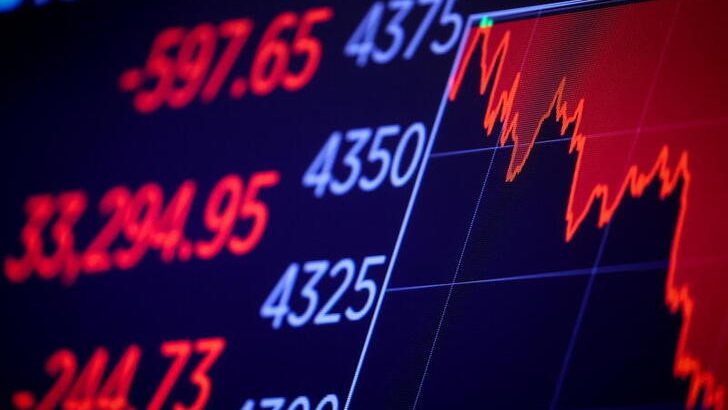Benchmark indices had their worst day in nearly a month on Friday, after hitting fresh lifetime highs in the previous two sessions, as foreign institutional investors (FIIs) turned net sellers in the market.
What seemed to have spooked them is the uncertainty over the rate cut by the Federal Reserve post latest inflation data, and removal of tax relief for Mauritius-based foreign portfolio investors.
FIIs net sold shares of Rs 8,027 crore, while domestic institutional investors were net buyers of shares worth Rs 6,341.53 crore, according to provisional data.
The Nifty 50 and Sensex fell around 1% each to close at 22,519.40 points and 74,244.90 points, respectively. Consequently, the indices ended flat for the week, erasing all the gains seen during the week.
Siddhartha Khemka, head of retail research at Motilal Oswal Financial Services said the rise in bond yields due to hotter-than-expected US inflation and amendment in the India-Mauritius tax treaty dampened the sentiments.
The yield on the benchmark 10-year US bonds rose to five-month high of 4.5% after data showed that US annualised CPI was 3.5% for March. The monthly CPI was 0.4% vis a vis estimates of 0.3%.
The higher inflation data has raised uncertainty of a rate cut by the Federal Reserve in June, upsetting the market momentum. “We expect markets to remain volatile in the near term given the global concerns and the start of an election next week,”Khemka said.
Amol Athawale, vice president – technical research at Kotak Securities said the market has has formed a reversal formation, which indicates temporary weakness. “We are of the view that, as long as Nifty 50 is trading below 22,650 the weak sentiment is likely to continue. Below which, the market could slip up to 22400-22305,”he said.
While BSE Smallcap and BSE Midcap indices fared better than large-caps, ending 0.6% and 0.5% lower, respectively, the overall market breadth was in favour of bears with 2,373 stocks ending lower on BSE compared to 1,466 gainers.
Moreover, the losses were seen across sectors with consumer durables, oil and gas, healthcare, and FMCG companies being the worst hit.
